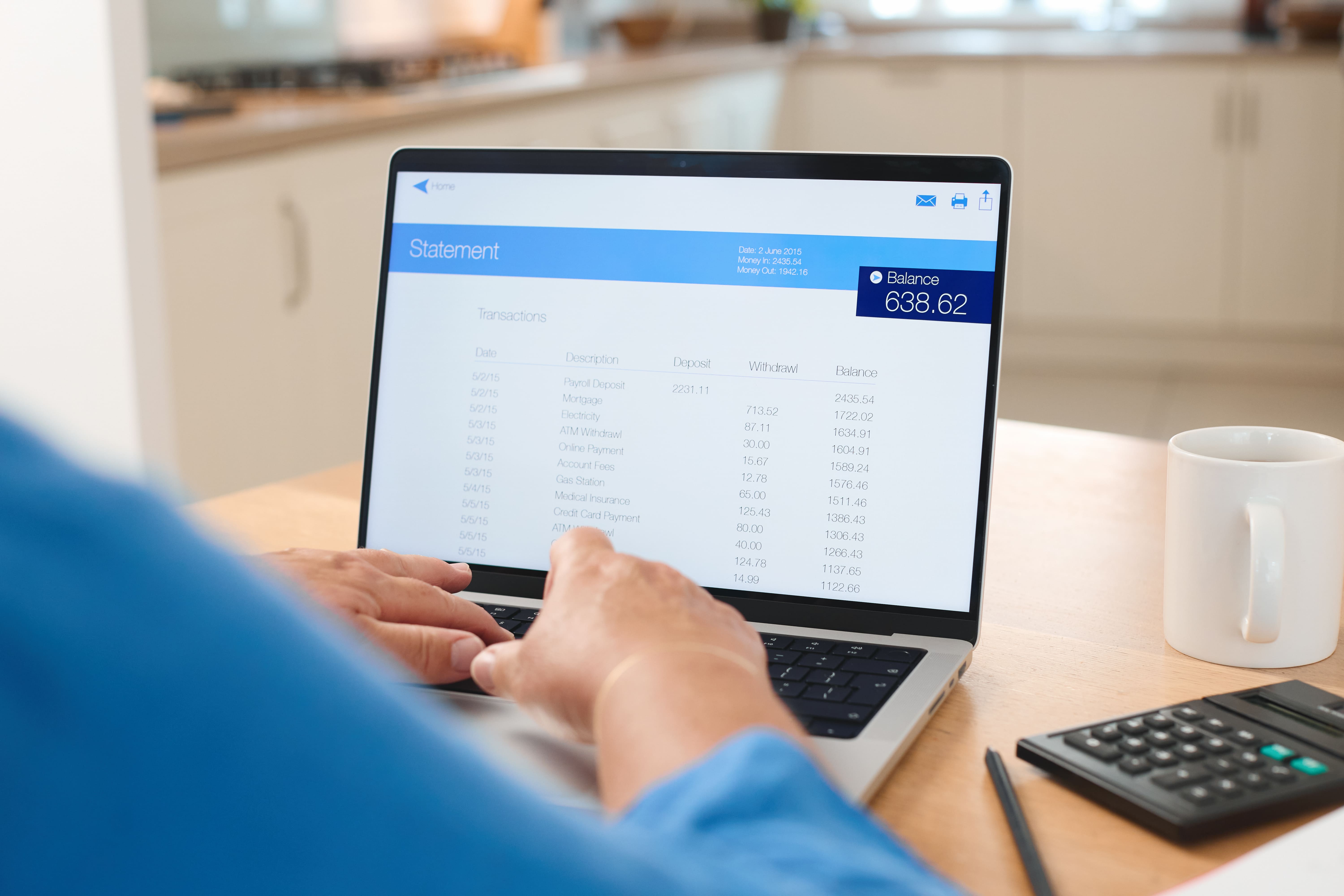As a rental property owner, you know the complexities of managing finances across multiple properties. Manual processes and fragmented systems can consume valuable time and obscure your true financial picture.
Opening a virtual bank account for your rental properties helps you stay organized, keep finances clear, and run your investments more smoothly.
Key takeaways
- Virtual bank account offers a digital-first approach to managing rental property finances, eliminating the need for physical branches.
- Separating personal and business finances through virtual accounts enhances organization, simplifies tax preparation, and protects assets.
- Key features to look for in a virtual bank account include unlimited sub-accounts, integration with property management software, and competitive annual percentage yield (APY).
- Opening a virtual bank account involves gathering documentation, choosing a platform, completing an online application, verifying identity, and setting up property-specific sub-accounts.
- Baselane offers a tailored virtual banking solution for landlords, providing integrated banking, bookkeeping, and rent collection features.
What is a virtual bank account for landlords?
A virtual bank account is a digital-first banking solution that operates entirely online, without the need for physical branch locations. For landlords, this translates into a highly flexible and accessible way to manage rental property finances from anywhere. Unlike traditional banks, virtual platforms provide enhanced digital tools and capabilities designed for property management.
These accounts often provide the option to create multiple checking accounts, also known as "sub-accounts," within a single master account. Each sub-account can have a unique account number, helping you segregate funds for individual properties, security deposits, or specific financial goals.
Achieving this level of granular organization is challenging with conventional banking setups.
Benefits of virtual bank accounts for rental property owners
Virtual bank accounts offer landlords various advantages to manage their rental portfolios and cash flow wth ease. The following are some of the key benefits.
Simplify financial tracking and reporting
Keeping personal and business finances separate is fundamental for accurate financial management. Virtual bank accounts allow you to dedicate specific accounts to each property, ensuring every income and expense is correctly attributed.
Streamline tax preparation
Tax season can be daunting for landlords, but organized financial records simplify the process immensely. Virtual accounts with integrated bookkeeping features can even auto-categorize transactions, further accelerating tax readiness.
Offer asset protection and legal separation
Maintaining separate bank accounts for your rental business is crucial for limiting personal liability. This practice establishes a clear distinction between your personal assets and your business assets, which is particularly important if your properties are held under an LLC or other business entity.
Proper financial separation provides a layer of asset protection. It also simplifies compliance with legal requirements for business operations.
Helps you manage security deposits efficiently
Many states have strict regulations regarding how security deposits must be held. Virtual bank accounts make it easy to comply by allowing you to create dedicated sub-accounts for each tenant's security deposit.
This ensures that funds are properly segregated from operating capital and are readily accessible for return or deductions, as required by law. It helps prevent accidental commingling of funds and simplifies the tracking of these specific liabilities.
Saves costs and offers higher yields
Digital banking solutions often come with lower or even zero banking fees compared to traditional institutions. Many virtual platforms also offer highly competitive APY on deposits, allowing your cash reserves to grow. These combined benefits can lead to hundreds of dollars in annual savings for landlords.
Automate repetitive tasks
Virtual banking platforms are designed for automation, reducing the need for manual financial tasks. Features like automated rent collection, integrated bookkeeping, and ACH money movement streamline routine operations.
Additionally, virtual card controls provide enhanced security and expense management. Baselane, for example, offers these tools to significantly decrease time spent on financial administration.
Helps you scale your rental portfolio
As your rental portfolio grows, managing finances across numerous properties can become overwhelming without the right tools. Virtual accounts enable you to oversee all your properties from a single, centralized dashboard.
Features to look for in a virtual bank account for rental properties
When choosing a virtual bank account for your rental properties, certain features are paramount for optimizing your financial management. Look for platforms that understand the unique needs of your portfolio and offer the following key features.
Unlimited sub-accounts
The ability to create numerous sub-accounts with unique numbers is a cornerstone of effective virtual banking for landlords. This feature lets you separate funds for each property, security deposits, and specific reserve funds like replacement reserves.
You can also allocate funds for future projects or unexpected repairs, creating interest reserve accounts or a specific account for an operating reserve for real estate. Many platforms, including Baselane, offer unlimited sub-accounts, which are ideal for property-specific tracking.
Integration with property management software
Seamless integration with property management software is vital for a unified financial ecosystem. This connection allows for automatic syncing of transactions and simplifies data flow between your banking and management tools.
Look for platforms that integrate with digital real estate platforms, dedicated real estate financial software, and comprehensive property management financial software for landlords. Such integration centralizes your data, reducing manual entry and errors.
Competitive APY and low/no monthly fees
Maximizing your returns means choosing an account that offers competitive interest rates on your deposits. Many virtual banking solutions feature attractive APY on savings, allowing your unspent funds to grow.
Furthermore, prioritize platforms that boast low or no monthly fees, transaction fees, or hidden costs. These financial benefits directly contribute to your overall profitability.
Flexible rent collection options
A virtual bank account designed for landlords should facilitate easy and versatile rent collection. This often includes Automated Clearing House (ACH) transfers, credit card payments, and even paper check deposits via mobile app.
Understanding what ACH banking is can highlight its efficiency for both ACH receivables and sending ACH payments online.
Consider platforms that offer automated invoicing and payment reminders to ensure timely rent collection for you and your tenants. This modern approach often proves more efficient than traditional methods like ACH vs check.
Virtual debit cards with expense tracking
Access to virtual debit cards provides an excellent way to manage and track property-specific expenses. These cards can often be assigned to specific sub-accounts or properties, simplifying expense categorization.
Many virtual banking solutions also offer a debit card with cash back rewards, providing additional savings on your business purchases. You may also want to consider a bank account with multiple cards for easy delegation and tracking within your portfolio.
Robust security and FDIC insurance
The security of your funds is paramount when choosing a virtual bank account. Ensure the platform utilizes robust encryption and security protocols to safeguard your financial data. Also, ensure that your deposits are insured by the Federal Deposit Insurance Corporation (FDIC).
Mobile banking access or a strong web platform
While some virtual banks offer dedicated mobile apps, a strong and intuitive web platform is equally important for comprehensive financial management. You should be able to easily view transactions, transfer funds, manage sub-accounts, and access reports from any device. Convenience and accessibility are key for busy landlords.
Easy ACH Setup
Streamlined ACH functionality is crucial for managing payables and receivables efficiently. Look for a virtual bank account that simplifies setting up ACH payables for recurring expenses like mortgage payments or vendor bills.
Easy access to your ACH routing number and account details is also essential for both incoming and outgoing transfers. This seamless setup reduces administrative overhead.
How to open a virtual bank account
Opening a virtual bank account for your rental properties is straightforward if you’re prepared. The steps below combine legal requirements, banking best practices, and modern landlord tools to help you set up your account efficiently.
Step 1: Sign up and prepare your documents
Start by choosing your banking provider and creating your account. Most virtual banking platforms (like Baselane) allow you to sign up online in just a few minutes.
Before applying, gather the documents you’ll need:
- Business formation documents: Articles of Organization (LLC) or Articles of Incorporation (corporation).
- EIN (Employer Identification Number): Required for tax reporting (sole proprietors may use an SSN).
- Operating agreement: If your LLC has multiple members.
- Business licenses or permits (if required by your state/city).
- Personal ID: Driver’s license or passport for each authorized user.
- Proof of address: For business and personal verification.
Having these ready speeds up approval and ensures compliance with banking regulations.
Step 2: Choose the right virtual banking platform
Select a provider that caters to real estate investors. Look for features such as:
- Unlimited checking and savings accounts.
- Sub-accounts or virtual accounts tied to each property.
- Integrated rent collection and bookkeeping.
- No monthly fees and competitive APY.
- Compliance support for holding security deposits in escrow (some states require these to be separate or interest-bearing).
Step 3: Complete the online application
Once you've chosen your platform, navigate to their website and begin the online application process. This typically involves entering your personal and business details, including the documentation gathered in Step 1.
You may also be prompted to link external bank accounts for initial funding or for seamless transaction syncing. Take your time to accurately fill out all required fields.
Step 4: Verify your identity
Virtual banks utilize digital verification methods to confirm your identity and the legitimacy of your business. This might involve uploading scans of your ID and business documents, or using third-party verification services. Some platforms may require a brief video call for additional security. This step is a standard part of the online onboarding process for financial institutions.
Step 5: Set up property-specific sub-accounts
Once your main account is active, create sub-accounts or virtual accounts for. This virtual bank account setup prevents commingling and makes tax preparation much easier.
- Each rental property (to separate rent income and expenses), e.g., 123 Main St – Rent Income
- Security deposits (to stay compliant with state escrow rules), e.g., Security Deposits – Unit 4B
- Reserves for maintenance, taxes, or capital repairs, e.g., CapEx Reserve – Duplex
Top virtual banking solutions for landlords
Choosing the right virtual banking solution can significantly impact your efficiency as a landlord. Here's a comparison of some leading platforms, highlighting their key features and how they cater to rental property owners.
Baselane stands out for its unlimited virtual sub-accounts, [v="apyvalue"] APY², and integrated property management features.
Managing multiple virtual accounts for your rental portfolio
Effectively managing a portfolio of rental properties hinges on organized financial practices. Virtual bank accounts, especially those offering unlimited sub-accounts, provide the ideal framework for this organization. You can streamline your real estate finances by assigning each property its own dedicated account. This clarity simplifies tracking income and expenses for individual units.
Consider establishing a specific naming convention for your sub-accounts (e.g., "Property Address - Operating," "Property Address - Security Deposit," "Property Address - Reserves").
This systematic approach helps maintain order as your portfolio grows.
While some landlords might question whether multiple bank accounts are good or bad for efficiency, the ability to create separate accounts, like setting up multiple bank accounts for rentals, is a strategic advantage for clarity and control.
Baselane, for example, helps you create a bank account with multiple sub-accounts that function almost like separate accounts. These integrated platforms offer a centralized dashboard that provides a clear view of all your property finances at a glance. It reduces time spent on manual reconciliation and bookkeeping, keeping financial records up-to-date and accessible for reporting or tax purposes.
Common challenges and solutions for virtual banking
While virtual banking offers numerous benefits, landlords might encounter specific challenges.
Handling of cash deposits.
As virtual banks lack physical branches, direct cash deposits are not possible. Solutions often involve using third-party services, such as MoneyGram or Green Dot, at participating retail locations, which can then electronically transfer funds to your virtual account. Alternatively, you might deposit cash into a linked traditional bank account and then transfer the funds digitally.
Navigating customer support
Access to customer support might not be easy or quick, especially when dealing with complex financial queries. Look for virtual banking platforms that offer multiple channels for support, such as phone, email, and live chat.
Reviewing user feedback on support responsiveness can provide valuable insights before committing to a platform. Many modern virtual banks prioritize robust online support to compensate for the absence of in-person assistance.
Bottom line
Managing rental property finances doesn’t have to be complicated. Opening a virtual bank account online gives you the tools to track income and expenses with precision, simplify tax prep, and keep your assets protected.
With Baselane, you can create unlimited property-specific sub-accounts, automate bookkeeping, and view your entire portfolio from one clean dashboard.
Modernize the way you manage your rentals—save time, stay organized, and grow your passive income with Baselane’s all-in-one banking platform built exclusively for landlords. Sign up today!
FAQs
What is a virtual bank account for landlords?
A virtual bank account for landlords is an online-only banking solution that allows you to manage rental property finances without a physical branch.
Why should landlords use separate virtual accounts?
Landlords should use separate virtual accounts to clearly distinguish personal and business finances, enhancing asset protection and simplifying tax preparation.
What documents do I need to open a virtual checking account online?
To open a virtual bank account for your rental property business, you typically need an Employer Identification Number (EIN) or your Social Security Number for a sole proprietorship business bank account. You will also need business formation documents (like Articles of Organization for an LLC), a valid personal identification (e.g., driver's license), and proof of your physical address.
Can I manage multiple properties with one virtual bank account?
Yes, many virtual bank accounts are designed to help landlords manage multiple properties efficiently. They often offer unlimited sub-accounts with unique account numbers.
What benefits does Baselane offer for virtual banking?
Baselane provides a comprehensive virtual banking solution specifically for landlords, featuring unlimited separate accounts for properties and reserves.

















.webp)